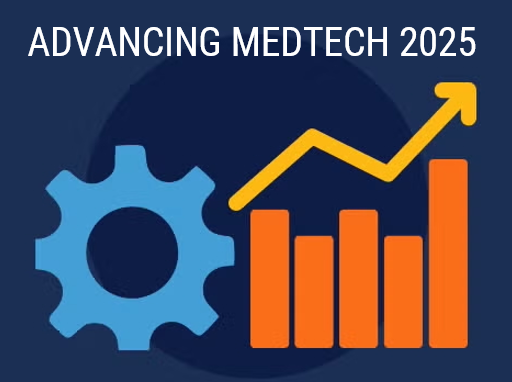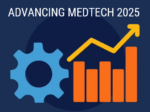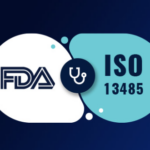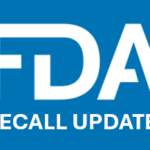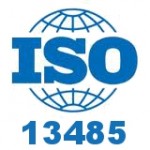For a long time, the medtech industry has focused on preparing for EU MDR. The regulatory change consumed many in a race toward compliance. More companies are now adapting with a focus on sustaining operations.
The move toward EU MDR sustainability extends beyond making changes to tech files. It requires more data, reporting, and information collected across the organization. We’re seeing a shift from a one-time project or expense to meet EU MDR requirements to an ongoing initiative that can meet long-term goals. Many are bringing together data and documents on a common platform for increased visibility and connectivity across functions.
The increased focus on sustaining EU MDR compliance paired with the spike in mergers and acquisitions—highlighted by the $13 billion acquisition of Shockwave by Johnson and Johnson—signals the industry is on the upswing. With refreshed priorities and optimism, three areas stand out that will advance the industry to drive innovation and ensure patient safety: AI, field actions, and regulatory intelligence.
Artificial intelligence moves from hype to practical applications
Medtechs are beginning to gain tangible value from practical applications of AI that improve efficiency. To accelerate product development, companies will embrace new AI-based approaches to address specific, high-value use cases. For example, AI can summarize clinical publications and provide analyses so regulatory professionals can focus on strategic decision-making.
As we enter the new year, adoption will accelerate as the initial AI hype gives way to a more nuanced understanding of AI’s capabilities and limitations. Companies will invest in establishing a strong foundation for AI, recognizing that a successful AI implementation requires structured data and documents. The methodical approach is already sparking unique applications of AI across various processes, from authoring marketing claims to enhancing medical, legal, and regulatory (MLR) workflows.
According to Dr. Jochen Tham, head of digital customer experience at Zeiss Medical Technology, “At the outset, we thought AI would fix our content generation. But while it will address certain steps where AI is especially well-suited, it will not fix the end-to-end content journey.”
A significant opportunity lies ahead in 2025 for medtech to accelerate analysis and improve decision-making with AI.
Field actions will enhance patient safety through rapid response
Field actions are a necessary focus for medtech companies, driven by the need to rapidly communicate product updates and safety information to healthcare providers. The industry recognizes that timely field actions directly impact patient outcomes and provider satisfaction.
Capturing signals from products and devices can prove challenging. Unlike biopharma medicines with straightforward administration, such as specific dosage information, medical devices often require skilled operation and are subject to technique variations.
Delivering information on device variations and changes to the field is critical for patient safety. To address the challenge, companies will develop systems that can rapidly ingest and analyze field data, quickly identifying trends or issues that require action. The process enables product decisions to flow to relevant healthcare providers, an improvement that can deliver a significant competitive advantage.
The companies looking to advance field actions will integrate with quality management systems to create a closed loop from complaint intake to action execution. This includes multiple steps, from issue identification, evaluation, planning, execution, and monitoring to closure for improved oversight, timeliness, and accuracy throughout the field action process. Closed-loopfield actions enable faster decision-making and communication about product changes or optimal usage.
“Field actions and its seamless connections to related QMS elements will help us to streamline processes, gain efficiencies, and better serve our customers,” says Matt Roberts, senior director, quality systems at Teleflex.
Regulatory intelligence will shift the industry toward strategic insight
The industry has moved beyond simple regulatory information gathering. Companies will demand sophisticated tools that transform regulatory data into actionable strategic insights.
Advanced regulatory intelligence systems can analyze notified body communications, internal submissions, and interactions with health authorities. This helps regulatory teams to identify trends, predict regulatory challenges, and develop optimal responses based on historical information.
The evolution of regulatory intelligence is advancing from merely tracking regulatory changes to understanding how regulatory information specifically applies to a company’s product portfolio. Companies that capture regulatory questions and the context, responses, and outcomes of those interactions will benefit from new levels of insight.
“Regulatory intelligence allows companies to understand which laws are applicable, review the technological capabilities a medical product offers, and better comply with regulations like GDPR,” says Tobias Schreiegg, director of regulatory affairs at Siemens Healthineers.
Today’s regulatory intelligence can augment submission preparation, allowing teams to quickly access and analyze previous interactions, anticipate potential questions, and prepare more robust documentation. Overall, it will help avoid repeated mistakes and streamline the regulatory process.
Adapting to a rapidly evolving landscape
Companies that effectively integrate advanced tools and processes will better navigate complex regulatory environments to improve patient outcomes and lead the industry into the future. Technology will be the key differentiator for medtech companies to quickly adapt to change in the years ahead. Organizations are considering how to modernize and evolve their processes and structures.
Evaluating and investing in AI, field actions, and regulatory intelligence will be a priority while cultivating a culture of adaptability to ensure long-term success. This requires thoughtful change management, cross-functional collaboration, and a commitment to continuous learning and improvement. The most successful organizations will drive innovation in processes and software for organizational agility.

